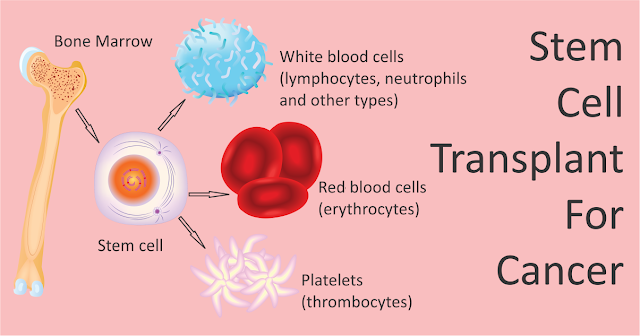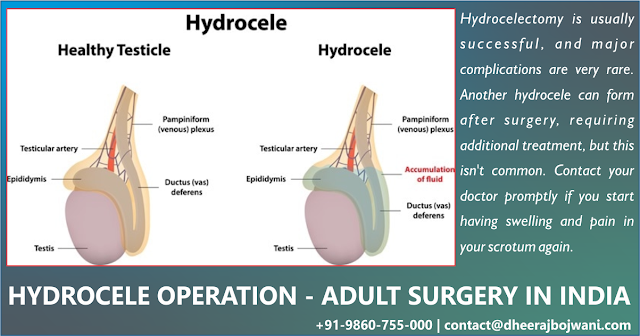Add Years to Life with Stem Cell Transplant for cancer in India
Stem Cell Transplants for Cancer Treatment - Overview
Stem cell transplantation (SCT), also known as bone marrow transplant, is a procedure in which diseased or damaged stem cells of bone marrow are replaced with healthy stem cells. Before Stem cell transplantation, the patient is given ‘Conditioning Treatment’ under which the patient receives high doses of chemotherapy to prepare the body for transplantation.
Stem cells are infused into the patient’s bloodstream from where they travel to bone marrow begin the process of ‘Engraftment’ for forming new, healthy blood cells, i.e. White Blood Cells (WBCs), Red Blood Cells (RBCs) and Platelets.
The Types of Bone Marrow Transplant
Types of stem cell transplants are based on either the patient’s stem cells or stem cells from a donor.
These types of stem cells transplant are:
- Autologous Transplant
It is a procedure that uses stem cells, taken from the body of the patient for transplantation. Doctors remove stem cells from the patient, store them and then return these cells to the patient’s body after conditioning regimen, i.e. after destroying cancerous or diseased cells.
- Allogeneic Transplant
In this procedure, stem cells come from a donor, i.e. some other person. The healthy stem cells from the donor are transplanted when the patient’s blood cells are too damaged or diseased to be infused back to patient.
However, there are several types of allogeneic stem cell transplants that are based on the source of donor cells, such as:
- Related Donor Transplant – the relatives or siblings can be the potential donors.
- Matched Unrelated Donor Transplant – when there is no matching donor among relatives, stems cells come from unrelated donors.
- Half-Matched Family Member Donor Transplant i.e. Haploidentical- especially during bone marrow transplant among children. Parents are always half-matched yet routinely done as an option.
Some other types of allogeneic stem cell transplants include:
- Umbilical Cord Blood Transplants – relatively new technique and is performed blood from the umbilical cord of a newborn when a matched donor is not available.
- Reduced-intensity stem cell transplantation which is also known as “Mini-Transplant” or “Non-Myeloablative Transplant”.
- Syngeneic stem cell transplantation is rare and only used on identical twins with donor twin and recipient twin having identical genetic makeup and tissue type.
How Do Stem Cell Transplants work against cancer?
The popular belief is that stem cell transplant work against cancer. The fact is that stem cell transplants do not work against cancer directly. Instead, they help patient re-discover ability to start producing blood cells after treatment with very high doses of chemotherapy, radiation therapy or both.
However, stem cell transplant may work against cancer directly in some types of leukaemia, lymphomas and multiple myeloma due to the graft-versus-tumor effect that can occur after allogeneic transplants.
Graft-versus-tumor improves the success of the treatments and takes place when white blood cells from a donor, i.e. the graft, attack cancer cells that remain in your body, i.e. tumour despite high-dose chemotherapy or radiation therapy treatments.
How much Stem Cell Transplants cost?
Although stem cell transplant is an expensive treatment all over the world, unlike all other countries, stem cell transplant cost in India is quite reasonable, as compared to western and developed countries.
Stem Cell Transplants cost in India depends upon:
- Reputation and expertise of Doctors
- Type of Hospital
- Type of cancer
- Treatment procedure
- Room Category
- Diagnostic and other medical and nursing facilities availed
- Number of days stayed in the hospital
Success Rate of Stem Cell Treatment
The success of stem cell treatment can only be measured in two ways that means:
- Blood count, i.e. the number of red cells, white cells and platelets in blood returns to safe levels.
Stem cell transplant can be considered successful when new stem cells multiply and start making more blood cells and blood counts improve
- Cancer is controlled mainly when stem cell transplantation is performed with the aim of curing diseases such as for some types of leukaemia and lymphoma
- In certain cases, even remission can be considered as a successful stem cell transplant.
However, stem cell transplantation has recorder higher success rates in curing cancers such as multiple myeloma, non-Hodgkin's lymphoma, Hodgkin lymphoma and leukaemia.
A stem cell transplant may help cancer patients to live longer than 5-10 years.
For an instant appointments click here
For an instant appointments click here





